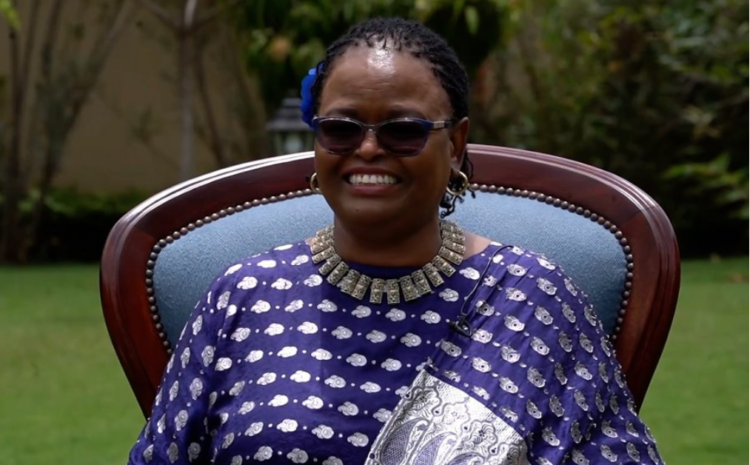
Martha Koome says she is focusing on building a judiciary that Kenyans can have confidence in
Ms Koome told the BBC she was concerned that the prosecution of cases involving corruption and embezzlement of public funds was taking too long.
The judiciary has long been marred by claims of corruption.
The second-most senior judge, Philomena Mwilu, is on trial for alleged abuse of office and taking of bribes.
She denies any wrongdoing.
Chief Justice Koome said trust in the judiciary had waned and she was focusing on giving Kenyans an institution they can have confidence in and one that is relevant to them.
The 61-year-old was appointed in May by President Uhuru Kenyatta after coming top of 10 candidates interviewed in front of a live television audience by Kenya’s Judicial Service Commission (JSC). She is the first woman to hold the position in Kenya.
Election pledge
In the interview, she also referred to her village upbringing in a polygamous family as her mother’s eighth child.
She said she was advised to study law after coming top of her class.
“So that’s how I ended up studying law and the rest is history.”
Ms Koome also spoke about mending relations with the executive, which soured after the Supreme Court in 2017 annulled Mr Kenyatta’s victory in August that year, citing irregularities. The court ordered a revote, which Mr Kenyatta went on to win amid an opposition boycott.
The judiciary has since complained of budget cuts intended to undermine its operations, while the president has disregarded court orders and slowed down the appointment of new judges.
She said it was up to both arms of the government to work together to remedy this.
“It’s like a three-legged stool. You weaken one part, the stool cannot stand. If you are talking about an efficient system of government then it includes the judiciary,” she said.
She also called for more judges to be employed to reduce the chronic backlog of cases, especially over land disputes.
She said that with another 20 judges, there would no longer be any cases which lasted more than three years.
